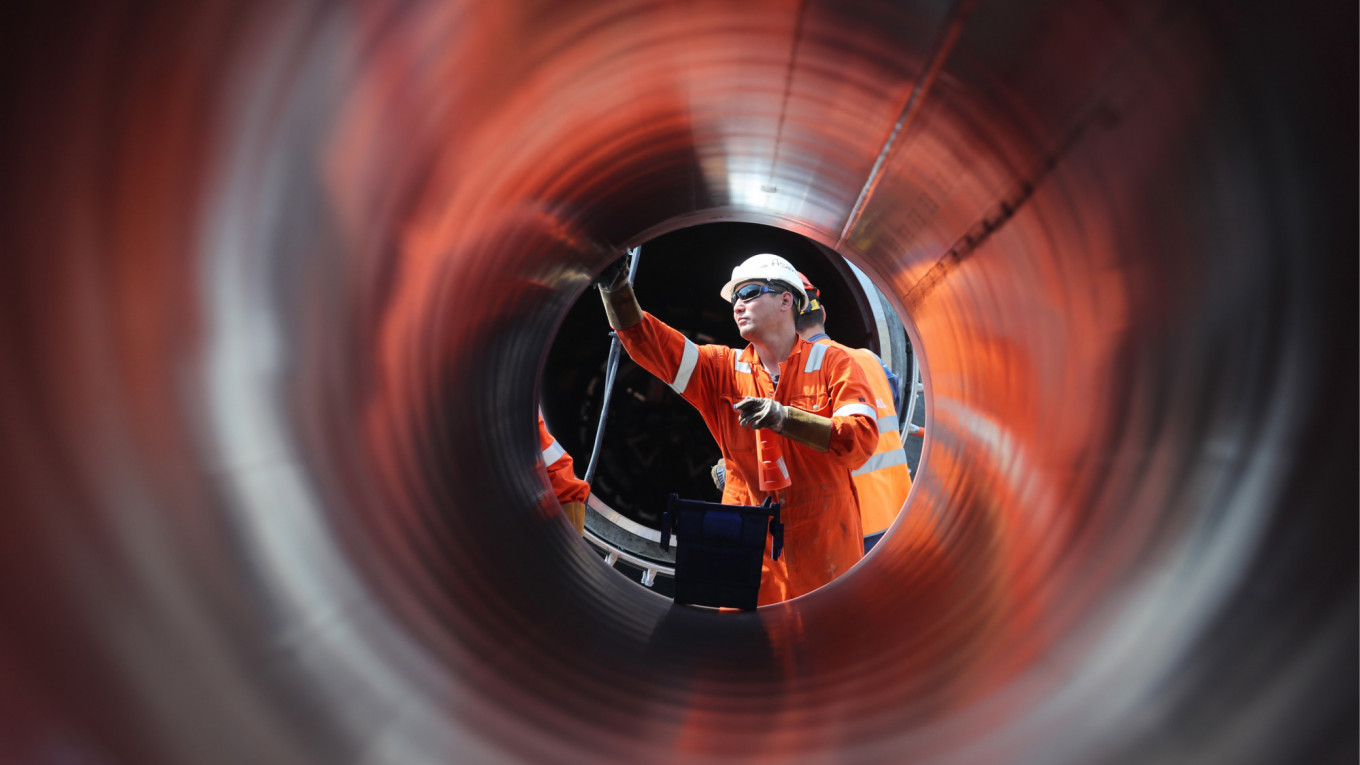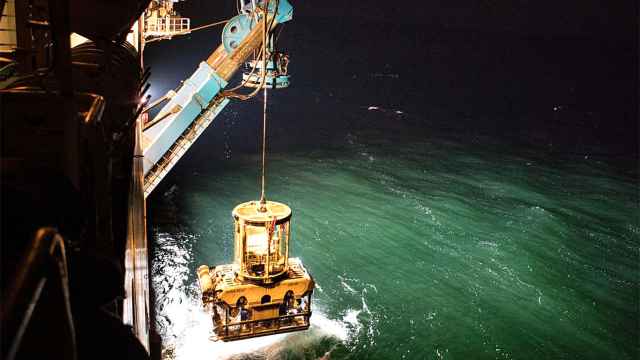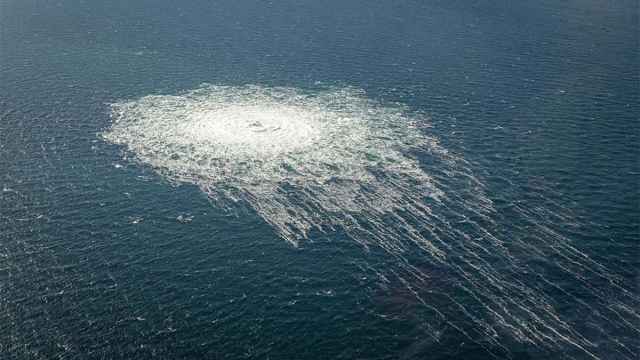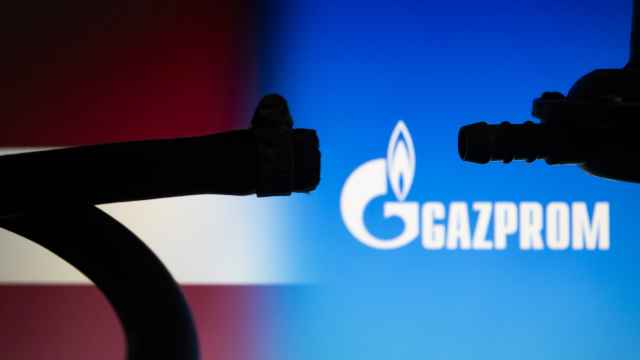Nord Stream 2, the controversial Russian natural-gas pipeline project, has received the last permission it needs to close the distance between the Leningrad Region and the Baltic coast of Germany. It’s now probably too late for the U.S. to prevent Russia from finishing the project by the end of this year.
Nord Stream 2 is part of Russian President Vladimir Putin’s plan to send natural gas to Europe without needing to go through Ukraine. The new pipeline will be able to carry 55 billion cubic meters of natural gas, more than half of what Russia now pumps through the Ukrainian system, and would mean for Ukraine a loss of $3 billion a year in gas transit revenues. The U.S. would like to prevent this, and also keep relatively cheap Russian gas from becoming an obstacle to increasing exports of U.S. liquefied natural gas to Europe. President Donald Trump has argued that Germany is too dependent on Russian gas, and has repeatedly threatened European companies involved in the project with sanctions.
Meanwhile, Russia has rushed to lay the pipe. On Oct. 1, Gazprom, the Russian gas export champion, said construction was 83% finished, with 2,042 kilometers (1,270 miles) laid across the bottom of the Baltic Sea. There had been a snag, though: For two years, Denmark put off granting permission for the section that was to pass through its territorial waters. On Wednesday, Denmark finally granted it, allowing the pipeline to take the shortest possible route, and Gazprom says that section can be built in five weeks.
This is a blow to Ukraine, albeit not a surprise. “We expected it this fall,” Andriy Kobolyev, chief executive officer of Naftogaz, the Ukrainian state company that runs the pipeline system, posted on Facebook. “Denmark’s principled position held back the project for some time, but geopolitical weapons cannot be stopped by means that regulate pure trade relations.”
It’s true that Denmark could not have held the fort forever while the U.S. dithered. The recent spat over Trump’s interest in buying Greenland did little to encourage the Danish government to keep dragging its feet.
Kobolyev called for Western sanctions as the next step. And in that, he’s supported by some American legislators. Republican Senator Ted Cruz promised to push his colleagues to pass the bill he has proposed with Democratic Senator Jeanne Shaheen, which would impose sanctions on vessels laying the pipeline.
That bill, however, is unlikely to delay the construction by much. Although Gazprom has used a Swiss-based contractor, Allseas Group SA, to lay the pipe, it can use its own vessel, the Akademik Cherskiy, for the final stretch.
So it’s too late for the U.S. to act. Sanctions against financing the pipeline could have been effective at the stage before European companies — Royal Dutch Shell, Engie, Uniper, OMV and Wintershall — provided what was needed. Sanctions against pipe-laying vehicles could have made a difference before the construction work began. In any case, they could have given Ukraine more time to renegotiate its gas-transit contract with Gazprom, which runs out at the end of this year.
A completed Nord Stream 2 will at least help Germany’s plans to stop using coal to generate power by 2038 — plans that cannot rely entirely on renewable energy, at least not until storage technology advances. (Most of the coal that will be replaced, by the way, is Russian coal.)
Now Ukraine, backed by the EU, wants a 10-year year contract to pump 40-60 billion cubic meters of natural gas. But Russia insists that any long-term agreement should resolve Ukraine’s billion-dollar legal claims on Gazprom, and for now is likely to agree only to a short-term, placeholder deal. Meanwhile it will keep working on bringing both Nord Stream 2 and the Turkish Stream project, meant to supply gas to southern Europe, to full capacity.
This article first appeared in Bloomberg.
A Message from The Moscow Times:
Dear readers,
We are facing unprecedented challenges. Russia's Prosecutor General's Office has designated The Moscow Times as an "undesirable" organization, criminalizing our work and putting our staff at risk of prosecution. This follows our earlier unjust labeling as a "foreign agent."
These actions are direct attempts to silence independent journalism in Russia. The authorities claim our work "discredits the decisions of the Russian leadership." We see things differently: we strive to provide accurate, unbiased reporting on Russia.
We, the journalists of The Moscow Times, refuse to be silenced. But to continue our work, we need your help.
Your support, no matter how small, makes a world of difference. If you can, please support us monthly starting from just $2. It's quick to set up, and every contribution makes a significant impact.
By supporting The Moscow Times, you're defending open, independent journalism in the face of repression. Thank you for standing with us.
Remind me later.








